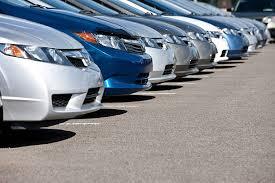
Navigating the Roads Wisely Tips for Efficient Driving and Fuel Economy
December 12, 2023
In an era where environmental consciousness and rising fuel costs are at the forefront of our minds, mastering the art of efficient driving is not just a skill, it's a responsibility. The way we navigate the roads can have a significant impact on both our wallets and the planet. This blog explores practical tips for efficient driving and fuel economy, empowering drivers to make conscious choices that benefit both their finances and the environment.
I. Mindful Driving Habits: The Foundation of Efficiency
A. Smooth Acceleration and Deceleration
One of the cornerstones of efficient driving is mastering the art of smooth acceleration and deceleration. Sudden starts and stops not only waste fuel but also contribute to wear and tear on your vehicle. Gradual acceleration and braking are not only more fuel-efficient but also enhance the overall driving experience.
B. Maintain a Consistent Speed
Consistency is key when it comes to fuel efficiency. Try to maintain a steady speed whenever possible. Frequent changes in speed, such as speeding up and slowing down, can negatively impact your fuel economy. Utilize cruise control on highways to help maintain a constant speed and minimize fuel consumption.
II. Optimize Your Vehicle for Efficiency
A. Proper Tire Maintenance
The condition of your tires plays a crucial role in fuel efficiency. Under-inflated tires create more rolling resistance, requiring more energy (and fuel) to move your vehicle. Regularly check and maintain proper tire pressure according to your vehicle's specifications.
B. Lighten the Load
Carrying unnecessary weight in your vehicle can decrease fuel efficiency. Remove items from your trunk or roof rack that you don't need for your journey. Every extra pound can contribute to increased fuel consumption, so travel light to maximize efficiency.
III. Smart Vehicle Management
A. Regular Maintenance Checks:
A well-maintained vehicle is an efficient vehicle. Regularly scheduled maintenance, such as oil changes, air filter replacements, and engine tune-ups, ensures that your vehicle operates at peak efficiency. Neglecting maintenance can lead to decreased fuel economy and increased emissions.
B. Use the Right Fuel
Make sure to use the recommended fuel type for your vehicle. Using a higher-octane fuel than required does not necessarily result in better performance and can be a needless expense. Consult your vehicle's manual to determine the optimal fuel for your engine.
IV. Strategic Driving Practices
A. Plan Your Routes
Planning your routes in advance can help you avoid unnecessary traffic and reduce the overall distance travelled. Utilize navigation apps that provide real-time traffic updates and suggest the most fuel-efficient routes, saving both time and fuel.
B. Avoid Excessive Idling
Idling consumes fuel without any mileage gain. If you anticipate being stationary for an extended period, consider turning off your engine. Modern vehicles consume less fuel when restarted than they do when idling for an extended time.
V. Embrace Fuel-Efficient Technologies
A. Hybrid and Electric Vehicles
Consider investing in a hybrid or electric vehicle if it aligns with your driving needs. These vehicles use a combination of traditional combustion engines and electric power, significantly reducing fuel consumption and emissions.
B. Start-Stop Systems
Many modern vehicles are equipped with start-stop systems that automatically turn off the engine when the vehicle is stationary, such as at traffic lights. This feature helps conserve fuel and reduce emissions, especially in city driving conditions.
VI. Driving with Environmental Stewardship in Mind
A. Car Pooling and Ride Sharing
Explore carpooling or ride-sharing options to reduce the number of vehicles on the road. Sharing rides not only minimizes traffic congestion but also contributes to lower fuel consumption per passenger.
B. Eco-Driving Apps
Take advantage of eco-driving apps that provide real-time feedback on your driving habits and suggest improvements. These apps can help you track your fuel efficiency and encourage mindful driving.
Conclusion
Efficient driving and fuel economy are not just buzzwords; they are practical steps toward a more sustainable and cost-effective future. By adopting mindful driving habits, optimizing your vehicle, and embracing fuel-efficient technologies, you can contribute to reducing your environmental footprint and saving money on fuel expenses. As responsible drivers, let's pave the way for a more efficient and eco-friendly journey on the roads, ensuring that every mile travelled is a step towards a greener, more sustainable future.
You Might Like Also

How to Get the Best Value for Money on New Cars

Benefits of Pre-Purchase Car Inspections in Karachi

The Role of Extended Warranties in Selling Your Car

The Future of MG Car Prices in Pakistan’s Market
















